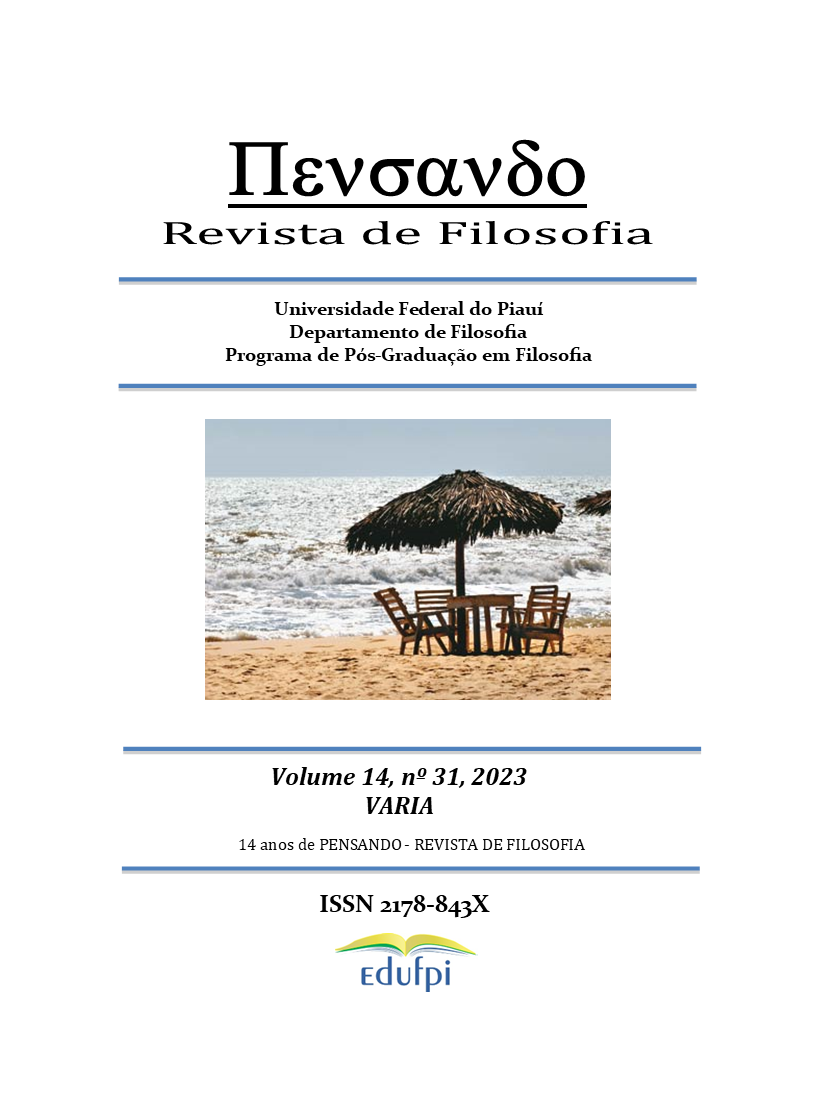Oedipus among the voice, the listening, and the path
DOI:
https://doi.org/10.26694/pensando.vol14i31.4113Keywords:
Michel Foucault, Oedipus, oracle, voice, path, listeningAbstract
This article aims to show how the relationship among the voice, listening, and the path is decisive for the Oedipal drama's tragic unfolding. From listening to the Apollinium oracle to the prophecies of the blind seer, Oedipus sets out on a journey, always in search of finding out truly who he is and what his destiny is. Based on the Foucauldian readings and in dialogue with other scholars of this millennial play, it is possible to see that the new judicial model implemented by the king of Thebes himself to discover the murderer of the former sovereign condemns him to listen to the word from which, for all time, he has evaded. And the salvation of the city? This is nothing more than an effect of lights and sounds: a way to make the truth emerge so that everyone can see and hear it and thus recover the lost order.
References
BETINNE, Maurizio.; GUIDORIZZI, Giullio. El mito de Edipo: imágenes y relatos de Grecia a nuestros dias. Madrid: Ediciones Akai, 2008.
CABRAL, Luiz Alberto Machado. Hino homérico a Apolo. São Paulo: Ateliê Editorial, 2004.
DETIENNE, Marcel. Apollon, le couteau à la main: une approche expérimentale du polythéisme Grec. Paris: Gallimard, 2009.
DUMÉZIL, George. Esquisses de mythologie: Apollon sonore. Paris: Quarto Gallimard, 2003.
FOUCAULT, Michel. Le Gouvernement de soi et des autres. Paris: Gallimard; Seuil, 2008.
_____________. Leçons sur la volonté de savoir. Cours au Collège de France. 1970-1971. Paris: Gallimard; Seuil, 2011.
INCERTI, Fabiano. O nascimento do inquérito na tragédia de Édipo-Rei: uma leitura foucaultiana. kriterion, Belo Horizonte, no 134, Ago./2016.
SÓFOCLES. Édipo-Rei. Rio de Janeiro: Lamparina, 2004.
SÓFOCLES. Édipo-Rei de Sófocles. São Paulo: Perspectiva. (Edição Bilíngue Grego- Português), 2012.
SOPHOCLE. Œdipe roi. Paris: Les Belles Lettres. (Edição Bilíngue Grego-Francês), 2007.
SOPHOCLE. Tragédies. Paris: Les Belles Lettres, 1962.
VERNANT, Jean-Pierre. VIDAL-NAQUET, Pierre. Mito e tragédia na Grécia antiga, São Paulo: Perspectiva, 1999.
Published
How to Cite
Issue
Section
License
Copyright (c) 2023 PENSANDO - REVISTA DE FILOSOFIA

This work is licensed under a Creative Commons Attribution 4.0 International License.

























